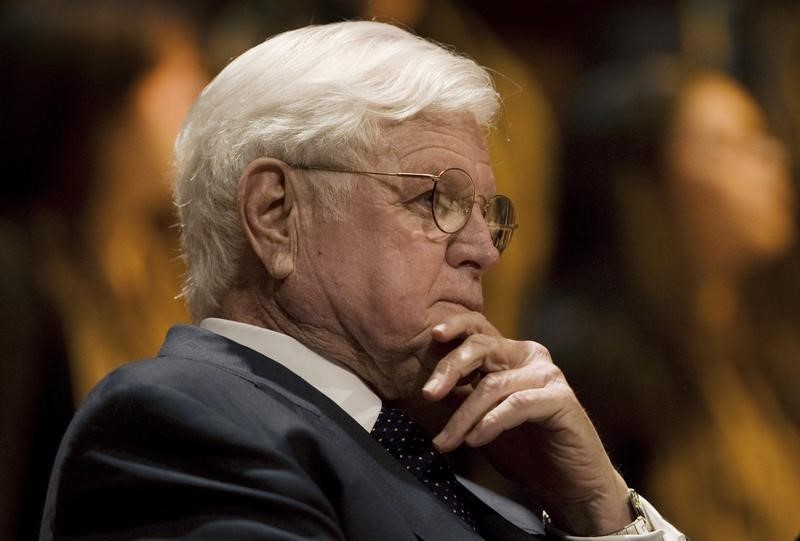By Scott Malone
BOSTON (Reuters) - Senator Edward Kennedy voiced frustration with President Bill Clinton's failed effort to reform the U.S. healthcare system in the 1990s and said in interviews released on Wednesday his views on immigration were shaped by stories his grandfather told.
Kennedy, a prominent Democrat known as a "liberal lion" during a half-century in office, sat for 19 interviews with oral historians from 2005 through 2008, discussing everything from his early political career to his role in passing major U.S. civil rights legislation. He died in office in 2009.
A champion of healthcare reform, whose endorsement played a role in the 2008 election of President Barack Obama, Kennedy described his frustrations at how Clinton's efforts at revamping the system failed, which he attributed to an early focus on exacting details.
"It's basically a miscalculation on their part, an obsession with the details," Kennedy said in March 2008. "The problem that they had was the secrecy and that caused a lot of backlash - because it lasted so long."
Kennedy, who died at the age of 77 in August 2009 a little more than a year after being diagnosed with brain cancer, was the brother of U.S. President John F. Kennedy and U.S. Senator Robert F. Kennedy, both cut down by assassins during the turbulent 1960s.
Following Robert's death, Edward was expected to run for the White House, but the effort was abandoned after a young woman drowned when a car he was driving plunged off a bridge. Kennedy failed to report the incident immediately and eventually pleaded guilty to leaving the scene.
He sought the Democratic nomination in 1980, in an unsuccessful bid to unseat incumbent Democratic President Jimmy Carter.
In an October 2007 interview, Kennedy recalled how his grandfather John "Honey Fitz" Fitzgerald's stories about how Irish immigrants were treated in 19th century Boston influenced his views on immigration. Fitzgerald, the son of Irish immigrants, served as mayor of Boston and a U.S. congressman.
"My grandfather told us that the Irish couldn't get jobs because they were not welcome," Kennedy said. "It was clear to me at the time that the laws in existence basically prohibited certain groups from coming into the United States."
The interviews are part of the Edward M. Kennedy Oral History Project. They were released by the Edward M. Kennedy Institute for the U.S. Senate and the University of Virginia's Miller Center.
The project compiled an archive of about 175 interviews, including 19 with Kennedy. The rest are with other people, including U.S. Vice President Joe Biden, Secretary of State John Kerry, Irish nationalist leader Gerry Adams and South African Archbishop and Nobel Peace Prize Winner Desmond Tutu.

Some of the interviews, including Biden's and those with Kennedy's children, have not yet been released.